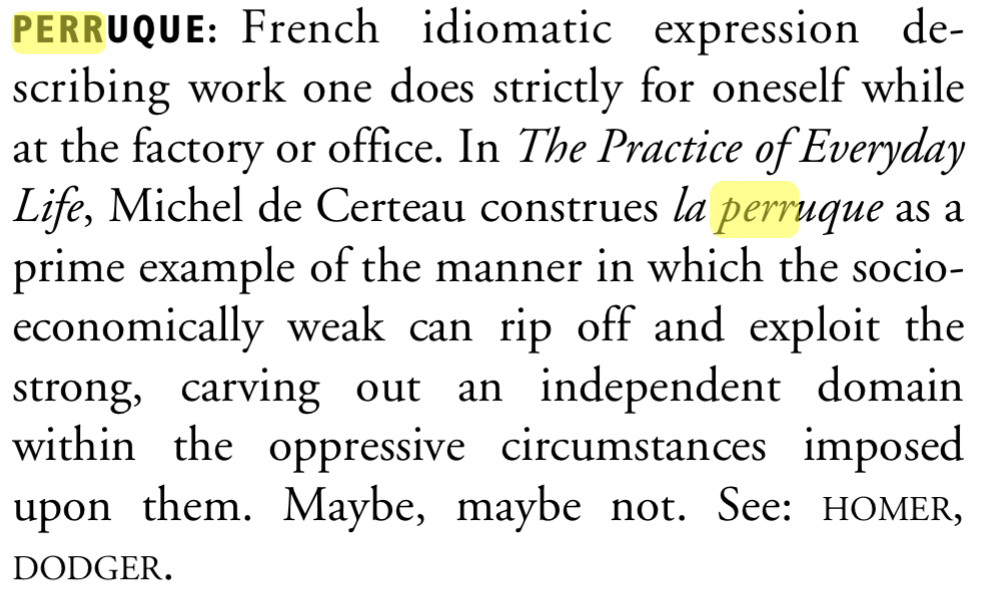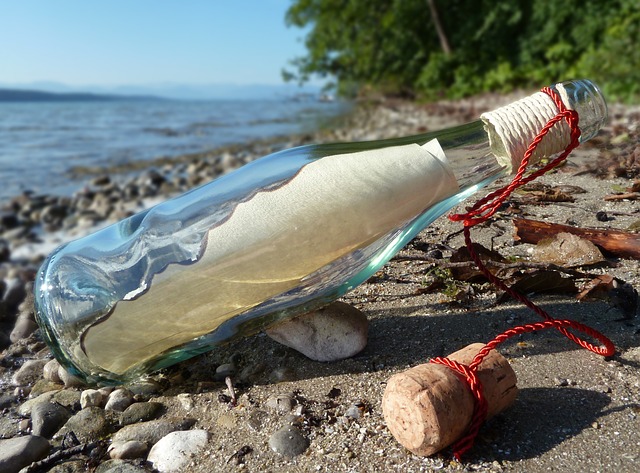An Escapologist’s Diary: Part 74. Existenzminimum
I just got back from a happy few days in Paris. I met Friend Landis who was over from Chicago for a book tour, swanned around at the AsiaNow art fair, listened to live jazz (and got hit on) at Harry’s Bar, and visited the Louvre for the first time.
What I mean to talk about today however is the hostel. I stayed in a proper hostel dorm for the first time in perhaps 20 years. I loved it and I’m going to do it again in Holland and Luxembourg next month.
Seemingly, Paris hostels have privacy curtains on their bunks, which really changes everything. The bad thing about hostels as everyone either knows or can imagine is the feeling of overexposure; that strangers might be looming over you as you sleep. But the simple addition of a curtain makes a hostel every bit as good as a Japanese capsule hotel. You can still hear people moving around in the room at night, but I found it oddly comforting; you can tell from their soft movements, careful not to cause a fuss, that they’re just sleepy travellers the same as you.
For about £30 (instead of the £100+ you’d need for a hotel room in a city like Paris) you get the privacy of your bunk (in which there’s a reading lamp, a socket for charging your phone, and some little shelves for anything else you like to have nearby in the night), a locker in which you can stash your bag for the duration of your stay (actually a cube-shaped chest with a padded lid, good for sitting on to remove or put on your shoes), and access to the communal kitchens and toilet/showers.
Sorry to rattle on excitedly, but I am excited. I really enjoyed all this.
The toilet/shower rooms are much like the ones you’d find at a modern gym: by which I mean private shower cubicles, not the horror of shared showers like the ones in which footballers practice their heterosexuality. The kitchens, I was surprised to see, were spotlessly clean but well used: as well as being a casual social space for strangers to chat, I saw travellers preparing decent meals in there like fresh soup and spaghetti. (I just used it to fill my water bottle before vanishing off into Paris for pastries and cocktails).
There was also a cafe-bar in this particular hostel. I assumed it would be a basic affair for weary travellers so I dropped in on my first night with a plan to read my book over a quiet pint. But there was a jumping party going on! Glamorous drag queens were spinning records while the well-dressed Parisian youth gyrated and laughed and mingled. The place felt like the colonial bar in Lawrence of Arabia where he demands lemonade after crossing the desert; it was decorated with strings of muted lights and lazy palm fronds.
I was wearing my smelly Montreal Bagel t-shirt and some old jeans, so I was hardly presentable for it. I thirsted for that beer though, so I courageously ensconced myself at the bar and chatted with a bar worker who wasn’t bothered about my grotesque appearance and texted with my partner at home who assured me I was beautiful. I felt too self-conscious to read though, so I quaffed my refreshing blanche and made a dash for my bunk.
Sleeping with that curtain closed was a bit like being on an overnight ferry or a sleeper train without, obviously, the sensation of motion. For three nights in my coffin-like quarters, I slept like a brute.
The hostel struck me as quite the model for living. It was my socialist motto of “private sufficiency, public luxury” taken to the extreme and placed under one roof. I was happy to be far from material responsibilities and domestic maintenance. I think I could have worked on my books there if I’d wanted to.
If my partner ever throws me out, I’ll look into a long-stay hostel arrangement. The existenzminimum of a bunk, a locker, and access to those shared cooking and showering facilities was extremely liberating. And when you’re not sleeping or padding around in the communal spaces, you’re out there in your new town, living.
*
Be frugal, be free. New Escapologist Issue 14 is available in print and digital formats now.
Letter to the Editor: At the Other End of the Age Scale
To send a letter to the editor, simply write in. You’ll get a reply and we’ll anonymise any blogged version.
Reader O writes:
Dear Robert,
At the other end of the age scale to you, at 76 I have discovered liberation!
I am a wood turner but thanks to long covid can no longer make the huge pieces I so enjoyed creating.
My professional lathe and massive chunks of wood have been looking at me balefully for the last three and a half years, so I have given them all away to a father and son who seem absolutely thrilled. In return they are setting me up with an excellent dinky lathe and cleaned out a bit of my workshop. I have also given away all my exhibition stands and plate racks to a very grateful recipient. I feel completely liberated, especially as everything has found a good home!
I’ve attached an image of some of my work.

*
Wringham Wresponds:
I was sad to hear that your crafting practice has come to an end, but it certainly sounds liberating in many good ways and your generosity in passing the flame to another generation is lovely to hear about.
Congratulations on a working life well spent and it’s good to know that you can still tinker and enjoy creative satisfaction on a smaller scale.
*
Be crafty, be free. New Escapologist Issue 14 is available in print and digital formats now.
A Correction
Shortly after this month’s newsletter went out, I received a good-natured email from Joshua Glenn in Boston:
Subject: Au contraire, mon ami!
Naturellement, j’ai consulté De Certeau lors de la rédaction de mon petit livre !
My claim that “perruque” does not appear in his glossaries was erroneous. Look! It’s right there:

Needless to say, I have already grovelled accordingly.
Oh well. Let’s all celebrate my embarrassing mistake by reading about Josh’s Adventurer’s Glossary.
Letter to the Editor: The Motion of the Yellowish Light
To send a letter to the editor, simply write in. You’ll get a reply and we’ll anonymise any blogged version.

Reader G writes:
Dear Robert,
I was thinking about your fondness for what you call “epiphanies,” that moment you said when one foot is on the train and the other foot is on the platform. I remember mine and you’re welcome to it.
I was photocopying something in the office and for some reason it had to be done with the lid open. The light that goes back and forth was gradually blinding me in a very particular way. I could still see the motion of the yellowish light when I closed my eyes.
The whole thing lulled me into a hypnotic state, at which point I knew something was wrong. I forced myself to snap out of it, not just for the sake of this moment but forever. I carried my notice around in my pocket for a few weeks and finally signed it, dated it, and handed it to my boss’s PA. I was free.
*
New Escapologist Issue 14 is available now from our online shop.
Living on the Ideas We Come Up With

Earthlings by Sayaka Murata is a very enjoyable novel about the experience of being an outsider.
The characters believe themselves to be aliens since the demands of society–tolerated or enjoyed by seemingly everyone else–feel too great. The main character, Natsuki, is afraid of sex and reproduction. Her husband doesn’t like sex either and also hates going to work.
Before we go any further I should explain that these characters are not exactly role models for Escapologists: they’re darkly messed up and the way things end for them is… insane.
(I kept flipping to the author photograph on the flyleaf. This came out of you? The cute hedgehog on the cover is a complete swizz designed to disarm you before its attack.)
Crazy it all may be, but the following moments of alienation are probably relatable:
Everyone believed in the Factory. Everyone was brainwashed by the Factory and did as they were told. They all used their reproductive organs for the Factory and did their jobs for the sake of the Factory
“The Factory” is what they call society. They see themselves as “tools” of the Factory, that they’re expected to work and breed in its service.
Our “aliens” escape in a very limited way and we get the kind of epiphany-like simple sentence I always love:
From the next day, our way of life changed completely.
And then they discuss their new life on the lam, which feels decidedly Escapological:
Yuu was still a little anxious. “But what are we going to do from now on? We might very much be Popinpobopians now, but to stay alive we need to rely on Earthling knowledge. And if we keep doing that we might become Earthlings, mightn’t we?”
“We’ll have to think about it. Staying alive is about coming up with ideas. Living on the ideas that we come up with.” My husband frowned and sniffed.
“Ideas? Really?”
“Yes. Not imitating the Earthlings but coming up with our own ideas for living. That’s how we can live on a planet that isn’t our own.”
*
Trapped on a Wheel
I’m editing a book at the moment (it’s this one – and do pre-order if it sounds good to you) in which author John Robinson nicely puts his finger on what I hate about television:
There’s a clichéd storyline you often see in television adverts: a man gets insurance for his car, you see him and his girlfriend buying a home, you see her pregnant, then with a child, then the child grows older and requires its own car and insurance. It’s a circle-of-life story often used to indicate the permanent necessity of brand loyalty, of commerce and capitalism: a depressing indication that we are trapped on a wheel, ground into society. It’s a literal statement that our purpose is purely to consume and procreate. Of course, these adverts show only heterosexual couples, because they are the grist to that mill. The fact that gay couples can adopt does not fit the template the advertiser desires: there remains an ingrained bias towards heteronormativity.
Yes! I know exactly the sort of advert John means. I can’t name the company behind the advert or even if there was any one advert that told precisely this story, but it nails the tone of an entire patronising wave of shithouse commercials you can see on mainstream telly.
And it’s not just in the adverts: it’s baked into the media, this up-propping of the passive suburban non-culture that facilitates the mass-milking of human beings for fun and profit.
In moments of human weakness, I occasionally stream an ITV game show called The Chase. It’s a good quiz because the multiple choice questions comes thick and fast so it’s easy to play along at home, stroking the chin and shouting out the answers.
But the shit the host comes out with! And the one-dimensional propagandic drivel you see in the ad breaks. The ads don’t just tell you what to buy: they tell you the way to be. Men are like this, women are like, and on and on.
It’s a window into how the powerful want us to be: don’t think, it’s cute to be a dafty, love the Royal Family, buy stuff, eat cake, vote Tory, don’t criticise, car go vroom-vroom, remember to replace yourself with another consumer on the way out, cheers. It almost makes me hate humanity. Which is why it’s best not to watch it.
Protect your brain! Throw away your TV, for it is a portal of toxic slurry!
Unstick yourself from that wheel. Be like Victor Hugo instead.
*
New Escapologist Issue 14 is available from our online shop.



